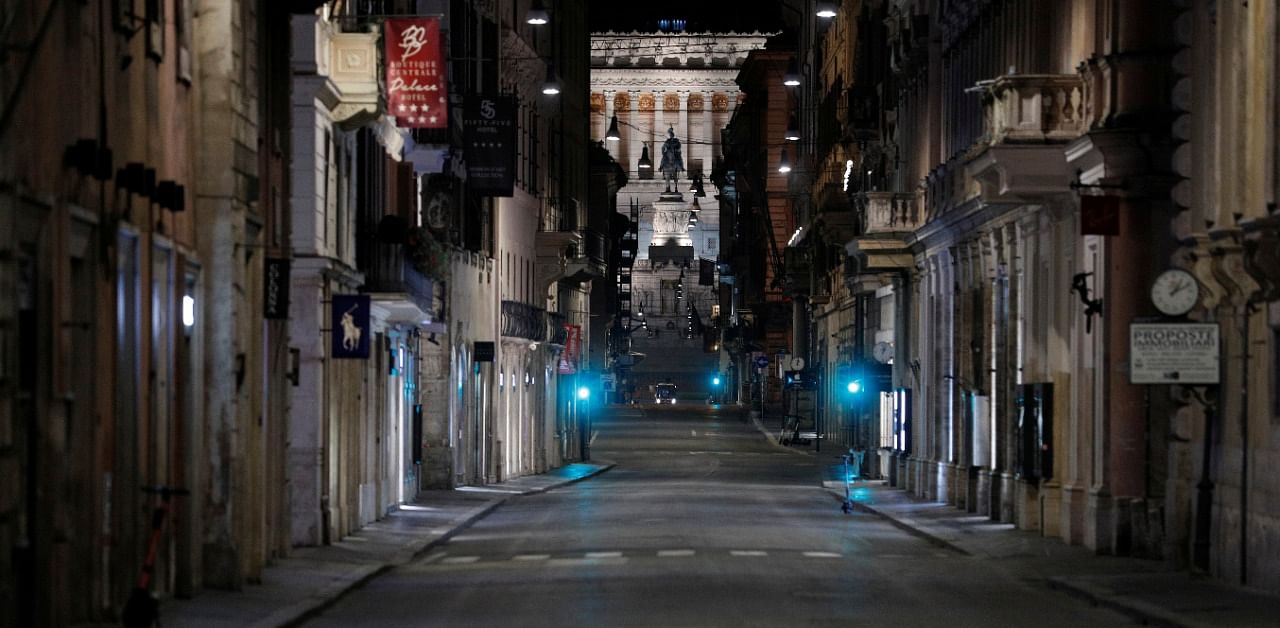
Italy's Campania region, based on the southern city of Naples, said on Friday it would impose a lockdown to tame the coronavirus and urged the whole country to follow suit as new infections hit a record high.
Campania has already closed most of its schools and imposed a nighttime curfew, and in the evening police used tear gas in Naples against hundreds of people protesting against the prospect of even tougher measures.
They were the first such demonstrations in Italy since the start of its coronavirus outbreak eight months ago.
Covid-19 cases across the country have risen seven-fold since the start of the month, jumping to 19,143 on Friday and raising fears that the pandemic is spiralling out of control.
The number of deaths is also climbing, albeit at a slower rate and less constantly. Fatalities totalled 91 on Friday, down from 136 the day before and far fewer than at the height of the first wave in March and April, when a daily peak of more than 900 deaths was reached.
Prime Minister Giuseppe Conte has said he wants to avoid a new national lockdown that would wreck the already fragile economy, but Italian law gives regional leaders leeway to establish their own curbs, and several regions are taking matters into their own hands.
"Current data on the contagion make any kind of partial measure ineffective. We have to close everything, except for those businesses that produce and transport essential goods," Vincenzo De Luca, the head of Campania, said on Facebook.
"We need to make one last effort to get things under control. We need to shut everything down for a month, for 40 days," he added, without saying when the shutdown would begin.
The governor of Lombardy, which includes Italy's financial capital Milan, said on Friday his region faced a "dramatic situation" and urged locals to respect a curfew that runs from 11 pm to 5 am, amongst other measures.
Lombardy, the epicentre of Italy's initial outbreak, remains the hardest-hit region, accounting for 4,916 of the new cases on Friday. Campania was the second-worst hit, with 2,280.
Underscoring the growing concern, a group of prominent scientists and researchers urged the government to take immediate, forceful action at a national level, warning that hundreds might die each day without a tougher strategy.
"The longer you wait, the measures you eventually take will have to be tougher, last longer and thus inflict a greater economic impact," the 100 academics wrote in an open letter to Conte.